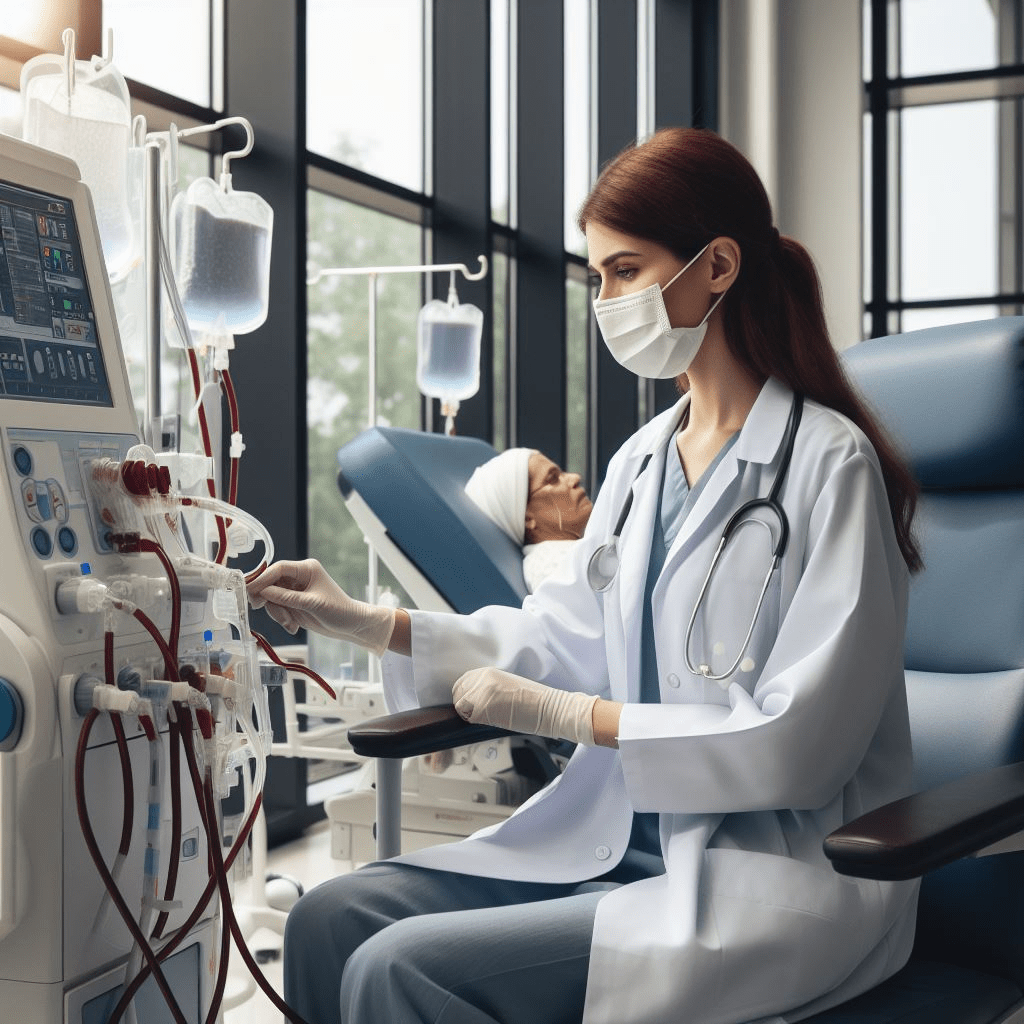Diploma in Dialysis Technology (D-DT)
Need Help
Need guidance on selecting the right course? Contact our support team for expert assistance today!
+91 8818036793
QUICK ENQUERY
Diploma in Dialysis Technology
PROGRAM OVERVIEW
Both acute and maintenance hemodialysis patients are accepted at this Institute, an unusual phenomenon in tertiary care institutes of this stature. Dialysis facilities are available on call. Different vascular accesses like AV Fistula, grafts and short-term as well as long-term catheters are used to deliver the dialysis services. Such large coverage, as that in IKDRC, provides the trainee with exposure to various clinical scenarios. The trainee also gets exposure to peritoneal dialysis and renal transplant patients, further enhancing their training in dialysis.

- Course: Diploma in Dialysis Technology
- Duration: 2-3 Year
- Eligibility: After 12th Pass & 10th Pass
Learning Outcomes:-
Communicate effectively in writing on a variety of topics related to health care.
- Demonstrate an awareness and appreciation of the delivery of culturally competent health care.
- Demonstrate the knowledge and ability to search and retrieve information and materials related to individual clinical practice issues or overall health policy concerns.
Describe and demonstrate management / leadership skills and theories that can be applied in preparation to lead or manage effectively in a health care environment.
- Demonstrate effective written and oral communication skills.
Career Prospects:-
Diplomas in Dialysis Technology pass-out students can pursue a plethora of career options. They can enter into service within a hospital, clinic, dialysis unit, or training institute, amongst others.
Programme Curriculum:-
- Introduction to Healthcare Delivery System in India
- Basic computers and information Science
- Communication and soft skills
- Medical Terminology and Record keeping (including anatomical terms)
- Medical Law and Ethics
- Introduction to Quality and Patient safety
- Professionalism and values
- Research Methodology and Biostatistics
- Principals of Management
- Community orientation and clinical visit
- Human Anatomy and Physiology
- Biochemistry
- Pharmacology
- Introduction to Kidney diseases- (Part I)
- DDTT Directed Clinical Education – part I (studentship)
- Introduction to Kidney diseases- (Part II)
- Principles and practice of Dialysis (Part I)
- DDTT Directed Clinical Education – part II (studentship)
- Principles and practice of Dialysis (Part II)
- DDTT Directed Clinical Education – part III (studentship)
- Internship

